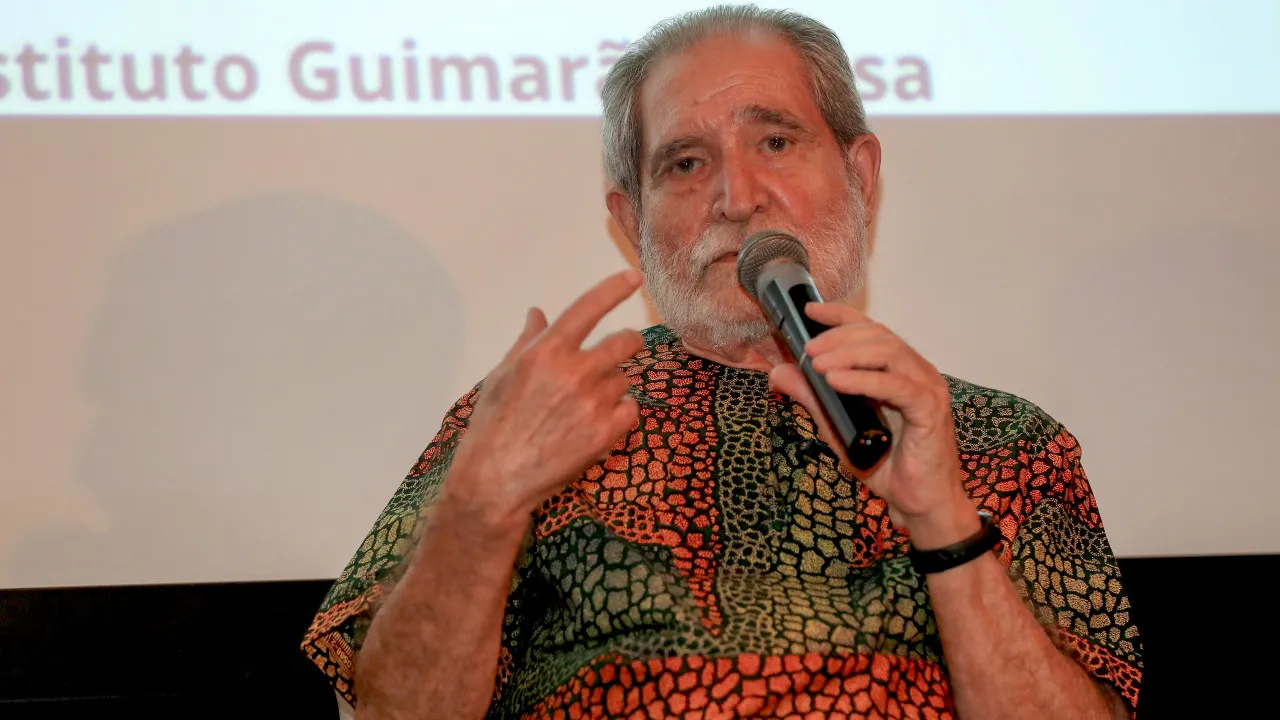
“It is indeed time for not only Angolans but Africans in general to start thinking and working independently. It is time to stop always seeking advice externally,” the author stated to journalists during the book launch event.
These pieces of advice “were once imposed” and now are no longer so, “but we continue to ask for them because we’re used to it,” affirmed Pepetela, emphasizing that “it would be good to look internally for a while” and “reflect on our realities,” based on African experiences, without fear of isolation.
During the launch session, the author discussed the book title and the sense of connection between places and memories woven through the narrative.
“Everything that happens must always be understood in a global context,” he stated, highlighting that “Everything-Is-Connected” is an expression that goes beyond the novel and serves as a key to understanding the present.
The book, published in Angola by Kacimbo, also authored by Ondjaki, features Major Santiago as the protagonist, who, after an accident, returns to his childhood home in Benguela.
It is there, among family memories, unusual encounters with a dog and a cat, and the magic of African traditions, that he rediscovers a past interconnected with the present, in a journey that traverses the formation of kingdoms in the Central Plateau to contemporary Angola.
Pepetela shared that the book title emerged from an internal debate during the writing process, with the novel initially set to be called “Santiago.” However, he ultimately perceived the connections between the various characters and realized everything was linked.
He also revealed that the hyphens in the title faced resistance from publishers in Portugal and Brazil but chose to retain them as an essential element.
The city of Benguela, where he was born and lived until the age of 17, serves as a central space in the narrative, illustrating a sentimental connection with his childhood and the Angolan territory.
Pepetela, the literary pseudonym of Artur Carlos Maurício Pestana dos Santos, also underscored the importance of History and Sociology, which have always served as tools for literature, as “knowing the past is fundamental to understanding today’s society.”
The work was published in three distinct versions: the original Angolan, the Portuguese, and the Brazilian (adapted to the Orthographic Agreement). “But the real book is this one,” he said, referring to the edition launched today in Angola.
When asked about the legacy he leaves for the future, he was direct: “The books.”
Pepetela, born in Benguela in 1941, is one of the towering figures in Angolan and Lusophone literature.
He was a guerrilla fighter for the MPLA during the liberation struggle and later served as Deputy Minister of Education in the post-independence period.
His literary work, initiated in the 1970s, tackles central themes of Angolan history and identity in a style marked by historical realism, social criticism, and elements of the fantastic.
Pepetela was awarded the Camões Prize in 1997 and the São Paulo Critics Special Prize in 1993, among other literary distinctions.




